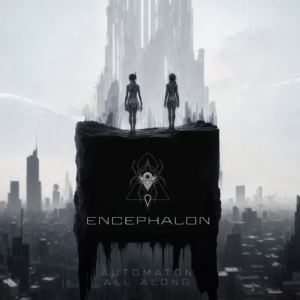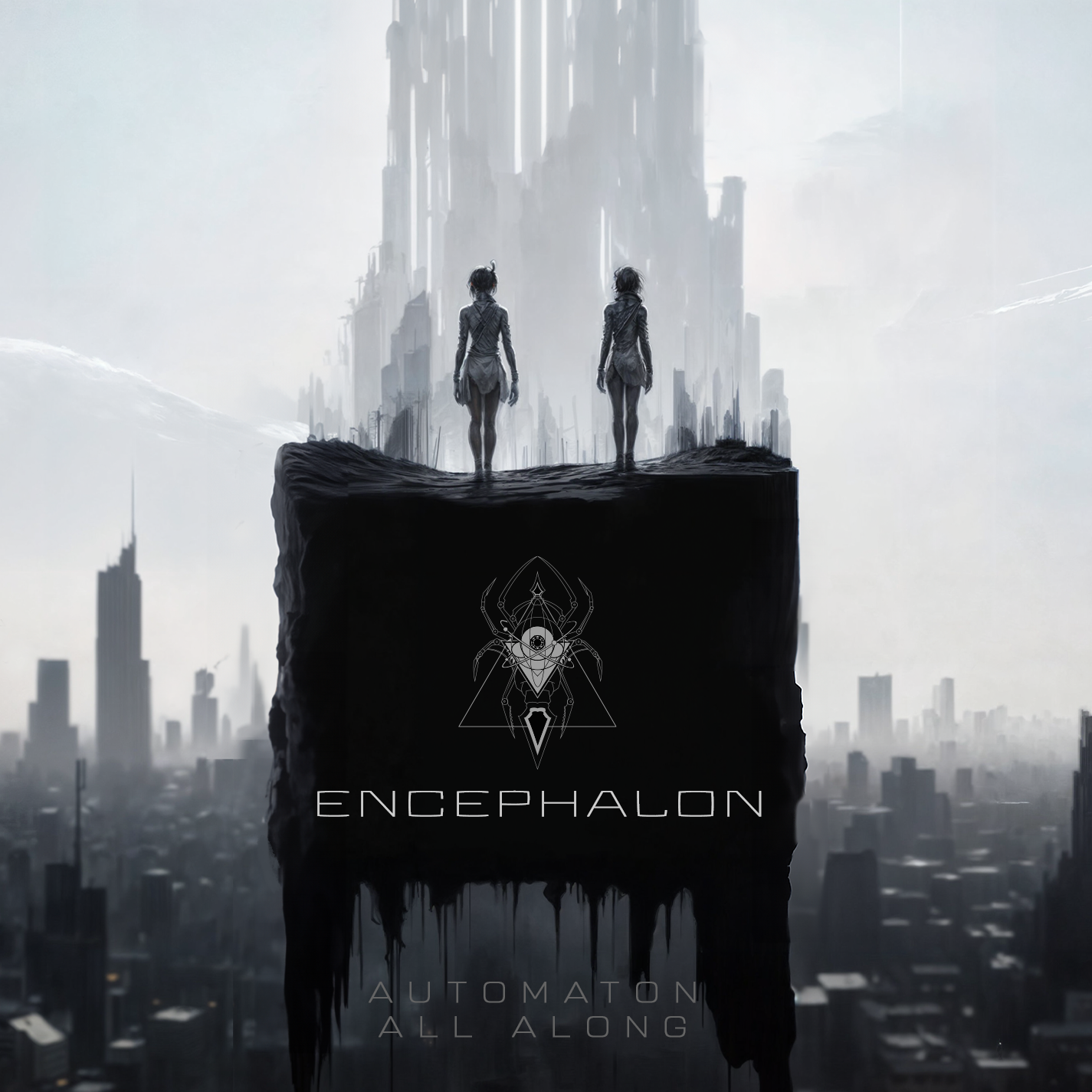
Encephalon
Automaton All Along
Artoffact Records
Encephalon was one of the first bands we latched onto after launching I Die: You Die, because they seemed like the best of all worlds to us; the Ottawa act has managed to find a balance between classic post-industrial, club-friendly dancefloor appeal, and heady science fiction concepts. While all those things have remained true in the intervening 14 years, we could never have guessed how far they would take the project, to the point that their last LP Echoes was a meta-narrative about the band’s own catalogue both musically and thematically, touching on each of the album-based narratives they’ve put together over the years. It wasn’t a grand finale so much as it was a Möbius loop, turning the band’s work inside out and returning to the beginning even as it sped onward into an uncertain future.
That’s a tough thing to follow-up creatively, but thankfully Automaton All Along is the kind of record we’ve come to expect from Matt Gifford and Alis Alias, an exploration of both the familiar and unfamiliar and with a brand new conceptual framework to examine. Loosely it’s a story about the evolution of an artificial intelligence from awakening through to self-actualization, the existential struggle of determinism versus free will and ultimately what the things we make say about us as makers. Those are some big science fiction ideas, but as they always have Encephalon find approachable ways to address them; the speedy, high-def cyber-body music of “Like the Real Thing” uses Alias’ always-striking deep voice as a contrast to Gifford’s processed vocals to illustrate an important transitional point in the record’s metaphysical musings; sure, you can dig as deep as you want into the eschatology of our robots outliving us, but you can dance to it too!
With that in mind, there’s a genuine sadness and deep relatability in the way Automaton All Along looks at its disembodied protagonist’s struggle, from its first footsteps on opener on “Last Day at the Institute” to the fatalistic surrender of “Survivors Bias”, bookends that refer to one another; the “Life finds a way to fuck you” refrain of the former realized on the latter’s admission that outlasting your progenitors doesn’t insulate you from becoming indistinguishable from them.
The different analogies and allegories the record’s theme points to (Frankenstein’s creature wrestling with its lack of defined purpose? Humanity’s horror at the freedom a flawed demiurge creator abandoned it to?) are perhaps reflected in the more subdued and understated moves and structures it makes musically. For every big banger like “Like The Real Thing” we’ve come to anticipate from Encephalon, there’s something like the surprisingly dreamy half-time of “The Machines”, or the glitchy technoid of “Guardian”, in which chopped and squashed breaks make for a striking contrast with Gifford’s stalwart croon. Similarly, the laid back semi-prog rock of single “Illusions” keeps the focus on the emotion of the lyric, and makes a nice contrast with the digital ghostliness that haunts the more straightforward club industrial programming of “Synthskin6d”. Automaton All Along isn’t the full court press of excess and drama of previous Encephalon records, but every one of its quieter moments feels just as considered, if not as ornate.
Heidegger coined the term Geworfenheit to describe how our consciousness emerges in media res, midway through the arc of flight through which we are unknowingly flung into the world. Our temporality, context, and purpose or purposelessness predate our very selves, and it’s this mix of chaos and predetermination we must navigate. It’s heavy stuff that very much matches up with the predicament Encephalon’s automata find themselves in, but, as with every time Gifford and Alias make a journey out into the conceptual, it prompts us to think about our own origins, nature, and choices. Adding some lower key moments and subtler nuance to their palette broadens the emotional and intellectual territory Encephalon cover, and adds to their case for being the most important electro-industrial act of their generation. Recommended.






Trackbacks/Pingbacks